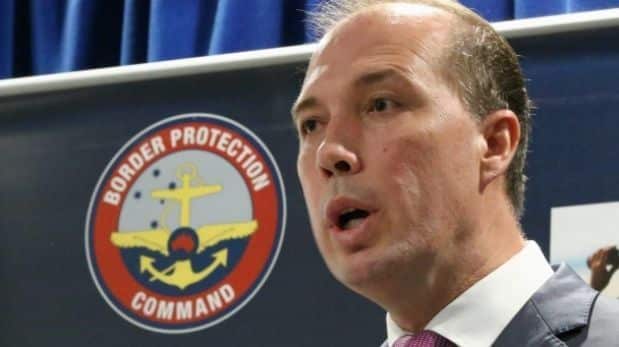Citizenship is already being denied on character grounds to people with relatively minor criminal records.
Part of the eligibility criteria for Australian citizenship is the Minister of Immigration being satisfied that the applicant is of good character: s21(2) of the Australian Citizenship Act 2007 (the Act).
The expression ‘good character’ is not defined in the Act. However, if there is a criminal conviction the decision maker will have regard to the nature of the crime to determine whether or not it reflected adversely upon the character of the applicant, and the decision will turn his attention to whether or not the applicant has shown that he has reformed: Irving v Minister for Immigration, Local Government and Ethnic Affairs [1996] FCA 663 per Davies J at 425. In some cases even where a conviction is not recorded it may have an adverse effect on a citizenship application
In Sharma and Minister for Immigration and Border Protection (Citizenship) [2015] AATA 608 (19 August 2015), the Immigration Department’s decision to refuse citizenship on character grounds was upheld. In that case, two years prior to applying for citizenship, the applicant was convicted of the offences of assault occasioning actual bodily harm and destroying or damaging property, that were domestic violence related. The applicant pleaded guilty and was sentenced to a good behaviour bond for 12 months.
In Jiang and Minister for Immigration and Border Protection (Citizenship) [2015] AATA 597, he Immigration Department’s decision to refuse citizenship on character grounds was upheld. In that case, the applicant pleaded guilty to the following offences: knowingly deal with proceeds of crime; possessing identification information with an intention to commit or facilitate an offence; and dishonestly undertaking or assisting in the retention of stolen goods. The applicant was fined $4000 with no conviction recorded.
BELOW IS AN ARTICLE FROM THE SYDNEY MORNING HERALD ABOUT IMMIGRATION MINISTER PETER DUTTON’S PLAN TO TOUGHEN THE TEST FOR CITIZENSHIP. DO YOU THINK HE IS GOING TOO FAR OR IS HIS THINKING JUSTIFIED?
Peter Dutton’s call for the citizenship test to be revamped – with a boosted focus on social integration and Australian values rather than “trivia” on history and government – has been greeted with scepticism by community groups, who argue that the citizenship process should not risk demonising or unfairly targeting people.
The Immigration Minister said he wants a debate on the test to weed out “a minority who are on a pathway to citizenship that we need to have a closer look at”, including people involved in gang activity, crime and terrorism.
Australia should consider changing the citizenship test to focus more on values such as working and educating children, rather than being so trivia based, according to the Immigration Minister.
“We need to see whether people are abiding by Australian laws, whether they are educating their children, if they are able-bodied and of working age, whether or not they are engaged in work or whether they have had a long period of time on welfare,” he told Melbourne radio station 3AW.
“At the moment, the test is dictated essentially by questions around Australian trivia, if you like,” he said. “And my view is that we could look at a test that would more embrace Australian values.”
In the wake of counter-terrorism operations that have seen some recently arrived Australians arrested, Mr Dutton’s suggested test would seek to gauge the success of an applicant’s integration into Australian society by quizzing them on their employment, children’s education, English attainment and criminal record.
Carla Wilshire, chief executive of the Migration Council Australia, greeted Mr Dutton’s comments with scepticism. She said there is a continual need for modernisation and improvement of the citizenship testing process but “we need to be careful not to demonise migrants”.
“Citizenship and a strong emphasis on belonging has been at heart of Australia’s brand of multiculturalism. In considering any changes we need to be careful that we do not lock migrants out of citizenship or create a guest worker society,” she told Fairfax Media.
“The statistics show that migrants are less likely to access welfare payments and their children perform at above average academic levels.”
Ms Wilshire said Australia did need improved “cultural orientation” for new migrants, with a focus on gender equality and access to justice.
The citizenship test currently asks 20 questions, randomly drawn from a larger pool, covering matters of Australian history, system of government and the rights and responsibilities of citizens. The person must get 75 per cent correct.
Applicants are also subjected to a character test, which prevents them attaining citizenship if they have a criminal conviction against their name.
Joe Caputo, chairperson of the Federation of Ethnic Communities’ Councils of Australia, said the organisation would need to see the details of any proposed changes but stressed new immigrants value citizenship dearly as a symbol of belonging and acceptance.
“We must ensure that, in changing the citizenship test, refugees and other vulnerable arrivals to Australia are not unfairly targeted,” Mr Caputo told Fairfax Media.
“FECCA believes that an emphasis on civics and citizenship education should be more important than testing in the process of attaining Australian citizenship alongside well-resourced settlement programs.”
It has been suggested that a new test would include questions like:
- “Have you broken the law?”
- “Are your kids enrolled in school?”
- “Have you found employment?”
- “Is your spouse enrolled in English-language lessons?”
A draft cabinet document obtained by Fairfax Media last year proposed changes to “create stronger controls over access to permanent residency and citizenship” and a renewed citizenship test (and pledge) to “strengthen accountability for commitments made at citizenship conferral”.
